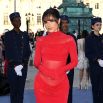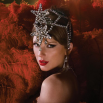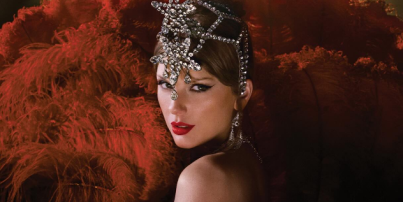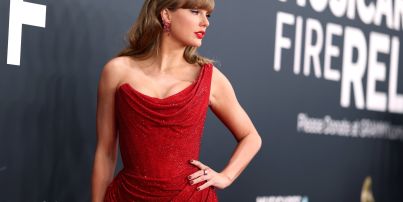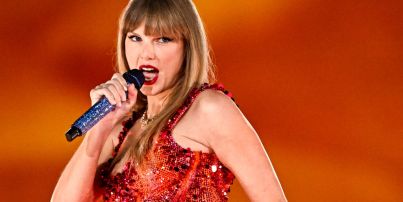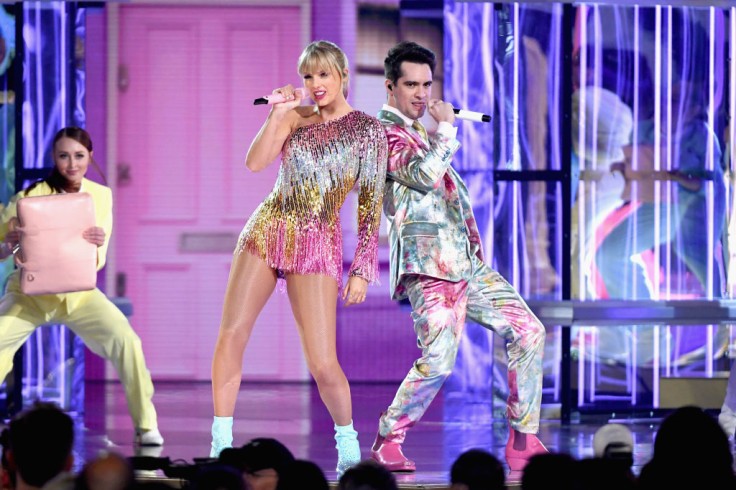
A New York Times article has set the Taylor Swift fandom ablaze. The piece, written by Opinion Editor Anna Marks, which revolves around the potential queerness in Taylor Swift's body of work, is dripping with anecdotal evidence and unsubstantiated assertions that come across as, at best, misguided, and at worst, downright conspiratorial.
The author analyzes Swift's "Lover Era" in 2019, focusing on the visual elements and themes of self-love, acceptance, and LGBTQ+ visibility in her music videos and promotional materials, from speculating about release dates, stating: "On April 26, Lesbian Visibility Day, Ms. Swift released the album's lead single, 'ME!,' in which she sings about self-love and self-acceptance," to the bizarre conjecture that the singer-songwriter may be publicly (though covertly) signaling the truth of her sexuality to queer fans. Marks offers several far-fetched examples: "In early August, Ms. Swift posted a rainbow-glazed photo of a series of friendship bracelets, one of which says 'Proud' with beads in the color of the bisexual pride flag." Again, Marks contends that Swift is consciously and explicitly signaling her "true" sexual identity: "Sometimes, Ms. Swift communicates through explicit sartorial choices - hair the colors of the bisexual pride flag or a recurring motif of rainbow dresses. She frequently depicts herself as trapped in glass closets or, well, in regular closets." The author laments that while these gestures were, apparently, an obvious means of discretely coming out to her queer fans "...the public did not widely view this as Ms. Swift's coming out." Most likely because that was not the case.
The article also touches on the public's mixed reactions to Swift's attempts to embrace, what the author denotes as "queer aesthetics and narratives", with some viewing it as performative allyship. The author states: "Whether she is conscious of it or not, Ms. Swift signals to queer people - in the language we use to communicate with one another - that she has some affinity for queer identity." This, of course, is not territory unexplored by other female pop stars; divas such as Diana Ross, Cher, Madonna, Lady Gaga, and many more have been known to embrace their gay fans and show support for the queer community. For many of these pop superstars, their use and appreciation of queer aesthetics and culture (think Madonna's "Vogue") or outright, explicit support (such as Lady Gaga's "Born This Way") results in gay men, in particular, making up a bulk of their fanbases, often becoming their most vocal supporters. Most pop musicians boast sizable queer fandoms and thus incorporate queer themes into their work regardless of their own sexualities or self-identification with the queer community.
The piece recalls an interview in which Swift acknowledges the hardships faced by LGBTQ+ and queer individuals, with the singer stating "Rights are being stripped from basically everyone who isn't a straight white cisgender male...I didn't realize until recently that I could advocate for a community that I'm not a part of." The author, bafflingly, twists this obvious omission of identification as a queer individual as a mere suggestion, as if she were more privy to the inner machinations of Swift's mind than Swift herself, writing "That statement suggests that Ms. Swift did not, in early June, consider herself part of the L.G.B.T.Q. community; it does not illuminate whether that is because she was a straight, cis ally or because she was stuck in the shadowy, solitary recesses of the closet."
The author then delves into the complexities of Swift's celebrity image, emphasizing the separation between her public persona and her confessional songwriting. It suggests that Swift's lyrics may contain subtle hints and references to queer identity, challenging the assumptions about her relationships with men. In the view of the author and other "Gaylors", a subset of Taylor Swift's fandom who believe the singer is a closeted member of the queer community, Swift has already come out of the closet. Marks writes, "There are some queer people who would say that through this sort of signaling, she has already come out, at least to us. But what about coming out in a language the rest of the public will understand?" Suppose the inklings of the Gaylor community were to be true, though Swift and her teams have repeatedly denied these claims. In that case, it seems entirely disrespectful to demand that the (alleged) closeted singer come out solely for their benefit.
This so-called evidence, as it is presented, seems to mirror the fervor of the Qanon faithful, who regularly contended Trump himself was dropping hints indicating that he championed their cause. In an article unraveling the riddle-laden lore of the QAnon conspiracy theory, author Robert Moore writes: "They believe that Q will not only ensure Trump's survival but that he - or she - will turn the tables and destroy the Democrats and the Deep State. And since Q is the 17th letter of the alphabet, his followers attach special significance to that number. In the eyes of Q believers, his credibility was enhanced when a follower asked Q to get President Trump to say 'tip top.'Sure enough, Trump did use those words, although he had used the phrase before and there is no evidence of a link between the president and the Q conspiracy theory." Similarly, the New York Times opinion piece indulges in coincidence and confirmation bias to legitimize the author's longing for the truth they constructed through the lens of their desires rather than a truth based in reality.
Following the publication of the New York Times opinion piece, Taylor Swift's associates rightfully slammed the piece and its invasive nature. As CNN later reported, the controversial article's publication by The Times is deemed unusual, and Swift's associates criticize its invasiveness, labeling it as an "opinion piece" under the guise of journalism. An associate close to the situation stated: "...in this moment there is a Taylor-shaped hole in people's ethics...This article wouldn't have been allowed to be written about Shawn Mendes or any male artist whose sexuality has been questioned by fans." The associate continued "There seems to be no boundary some journalists won't cross when writing about Taylor, regardless of how invasive, untrue, and inappropriate it is - all under the protective veil of an 'opinion piece.'"
While the NYT op-ed and the subsequent CNN follow-up have seemingly mainstreamed the Gaylor conspiracy to those formerly unaware, it is nothing new. r/GaylorSwift, a Reddit community dedicated to speculating on Swift's sexuality, has over 20,000 members and has been active since 2018. The Subreddit purports to be "a space for (thoughtful) discussion and examination of Taylor Swift and possible queer readings, themes, and motifs in her work and public persona." The introduction to the page also states: "This subreddit is centered around queer interpretations of Taylor Swift's music. Comments arguing that Taylor is straight are subject to removal."
As one would assume, the insular community effectively functions as an echo chamber, sometimes resulting in ire for Swift herself when she does not conform to the narrative the community has crafted. Following the controversial article, one user wrote "Regardless of whether or not Taylor as an individual is queer or straight, the reality is by queercoding the way she has while having media outlets play both sides of the coin, Taylor Swift TM️ as a corporation has caused a large undeniable cultural harm to the LGBTQIA+ community because the impact is actively working to erase queer history on a wider scale." The notion that Swift has been intentionally queercoding in order to "play both sides," rather than accepting that they had simply read too far into innocuous "evidence" as a form of wish fulfillment, is concerning, as is the claim that Swift has caused "undeniable cultural harm" to the queer community.
In the past, the community has written off Swift's connection with current partner Travis Kelce as a staged PR relationship, and angrily responded to Swift's own comments, particularly those made in the "1989 (Taylor's Version)" Prologue where she states: "If I only hung out with my female friends, people couldn't sensationalize or sexualize that - right? I would learn later on that people could and people would." Even after this statement, the consensus on the board remained: "She did NOT say she was straight."
Despite the Gaylor community's insistence, Swift's associates criticize the invasion of her privacy and the questionable journalistic boundaries crossed by The Times. Ultimately, the controversy surrounding Swift's sexuality underscores the importance of respecting an individual's privacy and questioning the boundaries of speculation within journalistic practices.
© 2025 MusicTimes.com All rights reserved. Do not reproduce without permission.



